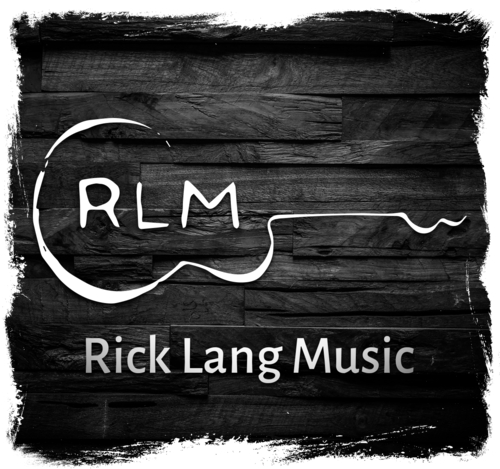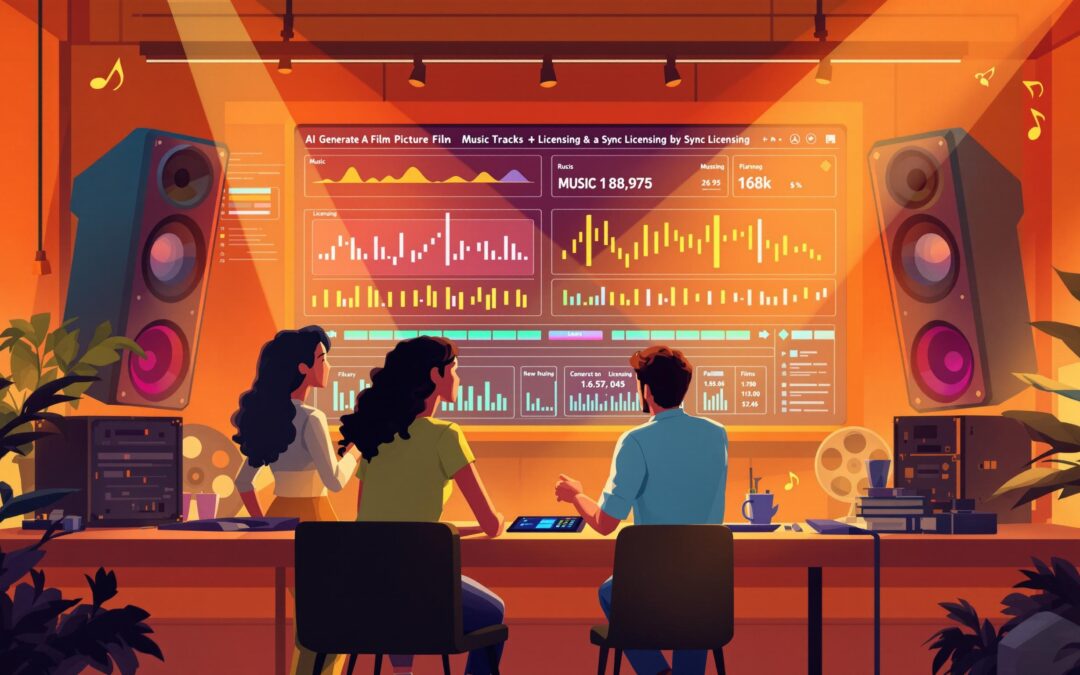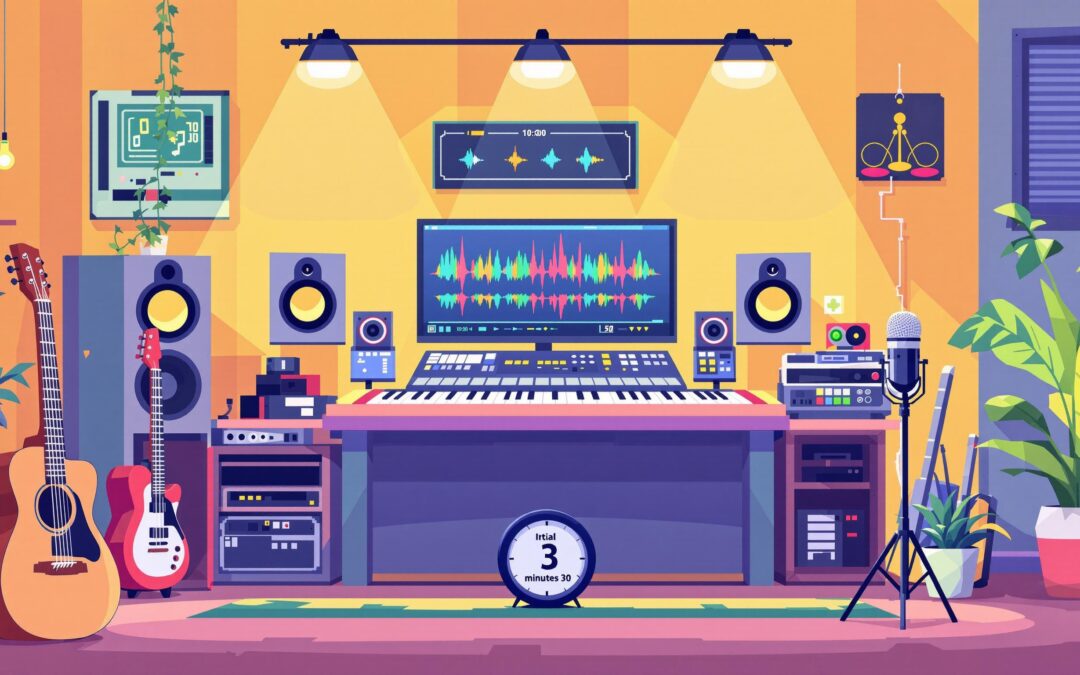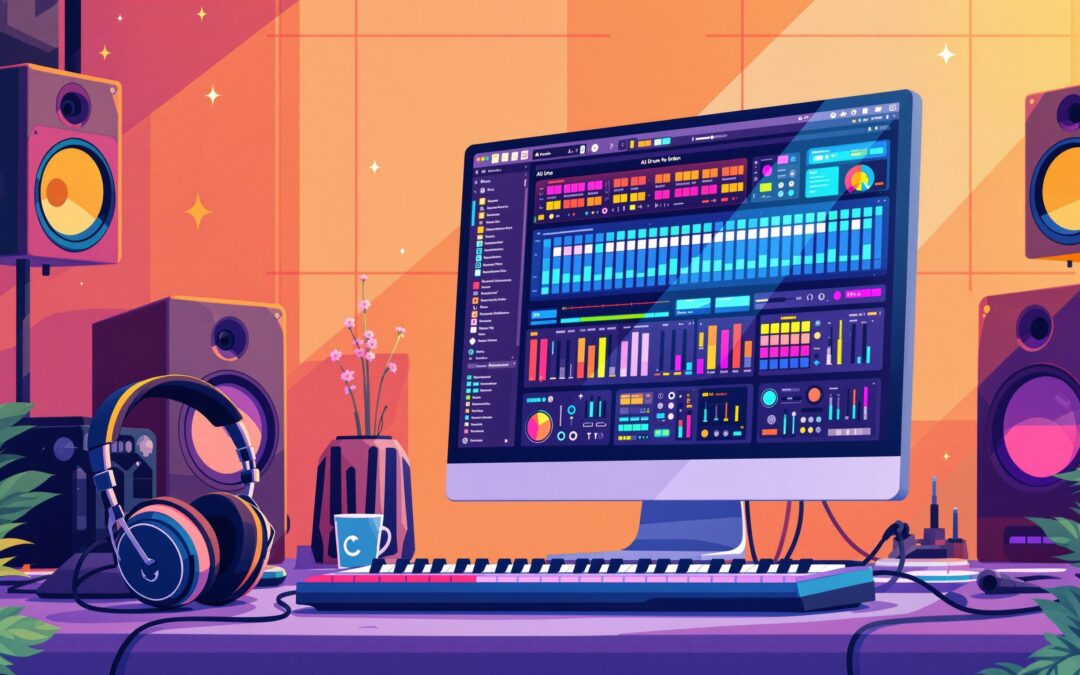SMART goals help songwriters turn vague ideas into actionable plans. Here’s how to make your songwriting process more focused and productive:
- Specific: Define clear objectives (e.g., "Write 3 pop songs with full lyrics and melodies").
- Measurable: Track progress with tangible metrics (e.g., completed verses or recorded demos).
- Achievable: Set realistic goals based on your skills and resources.
- Relevant: Align goals with your musical style and career aspirations.
- Time-bound: Assign deadlines to keep yourself accountable.
For example:
- Write and record 3 demos by June 1, 2025.
- Dedicate 45 minutes daily to lyric writing.
- Complete 6 co-writing sessions with new collaborators by September 30, 2025.
Use tools like spreadsheets, calendars, or apps (e.g., Trello, Google Calendar) to track progress. Adjust goals as needed and learn from both successes and setbacks. Start today by setting one SMART goal for your music!
SMART Goals for Musicians
Making Goals Specific and Measurable
Setting clear, actionable goals is key to achieving success in songwriting. By using precise language and measurable criteria, you can turn broad ambitions into tangible milestones.
Writing Clear Goals
Instead of vague aspirations like "get better at songwriting", focus on specific, actionable goals. For example:
- "Write and record demos for 3 complete songs by June 1, 2025"
- "Dedicate 45 minutes every morning to lyric writing from 7:00 AM to 7:45 AM"
- "Complete one co-writing session each month with a new collaborator"
These types of goals clarify what you’re aiming to achieve, include deadlines, and make it easier to track progress.
Tracking Your Progress
Use measurable metrics to monitor your progress. Here’s how you can track different aspects of your songwriting:
| Metric Type | Metric | Tracking Method |
|---|---|---|
| Output | Number of completed songs | Spreadsheet or songwriting journal |
| Time | Hours spent writing | Time-tracking app or calendar |
| Quality | Songs registered with PROs | PRO dashboard statistics |
| Collaboration | Co-writing sessions completed | Project management tool |
| Learning | New techniques practiced | Skills checklist |
Keep a journal – digital or physical – to log your progress consistently. These metrics help you stay on track and adjust as needed.
Sample SMART Goals for Songwriters
1. Production Goal
Upload 12 fully produced songs to streaming platforms by December 31, 2025. Break this into smaller steps:
- Finish one song each month
- Schedule two writing sessions weekly
- Dedicate three hours to production per song
- Revise each song with peer feedback
2. Collaboration Goal
Complete 6 co-writing sessions with new collaborators by September 30, 2025:
- Research potential collaborators weekly
- Send three collaboration requests monthly
- Allow two weeks to complete each song
- Register finished songs with your PRO within 48 hours
3. Skills Development Goal
Learn three new songwriting techniques by July 1, 2025:
- Study a new chord progression technique each month
- Practice writing lyrics with metaphors weekly
- Record progress using voice memos
- Write one song applying each technique
These examples show how structured goals can make your songwriting journey more focused and rewarding.
Setting Goals You Can Achieve
Know Your Limits and Tools
Before diving into songwriting goals, take a moment to assess what you have at your disposal. This helps you set realistic targets that push your boundaries without being out of reach.
Here’s a quick breakdown of what to evaluate:
| Resource Category | What to Assess | Impact on Goal Setting |
|---|---|---|
| Equipment | DAW, instruments, microphone, interface | Affects production quality and technical possibilities |
| Time | Weekly writing hours, recording availability | Dictates how much you can produce and how fast |
| Skills | Writing ability, music theory knowledge, production expertise | Determines the complexity of your projects |
| Network | Co-writers, mentors, industry contacts | Opens doors for collaboration and learning |
For instance, if you’re juggling songwriting with a full-time job, aim for something manageable, like completing one polished song every two weeks. Use dedicated time blocks to stay consistent.
Once you’ve assessed your resources, connect your goals to your personal musical style for a more tailored approach.
Match Goals to Your Music Style
Your genre and artistic vision should guide your goals. Different styles come with their own demands and timelines. Here’s how you can align your efforts:
Pop
- Focus on creating memorable hooks
- Use modern production techniques
- Work on commercial appeal
- Explore collaborations to broaden your reach
Folk/Acoustic
- Highlight storytelling in your lyrics
- Dive deeper into emotional and meaningful content
- Ensure your songs translate well to live performances
- Aim for a natural and raw sound
Electronic
- Hone sound design skills
- Perfect beat programming
- Improve your mixing abilities
- Learn about digital distribution platforms
When setting your goals, your experience level plays a big role. Here are some examples for each stage:
Beginner Level
- Write and finish one song each month
- Take a basic songwriting course
- Record simple demos to practice
- Get feedback from peers or mentors
Intermediate Level
- Experiment with new genres to expand your creativity
- Record a polished demo of a standout song
- Build a collection of 10–12 songs
- Pitch your work to local artists or bands
Advanced Level
- Schedule regular co-writing sessions with experienced songwriters
- Pitch your songs to publishers or record labels
- Enter songwriting competitions to gain exposure
- Create a professional website to showcase your portfolio and grow your online presence
sbb-itb-1c6af30
Adding Time Limits to Goals
Setting Good Deadlines
Having clear deadlines can help keep your songwriting on track. Here’s a structured way to organize your goals:
| Timeframe | Goal Type | Example Deadline |
|---|---|---|
| Weekly | Process Goals | Dedicate 3 hours to focused writing, broken into 45-minute sessions |
| Monthly | Output Goals | Complete drafts for 2 songs, including basic arrangements |
| Quarterly | Portfolio Goals | Finalize 4-5 fully produced songs |
| Annual | Career Goals | Release an EP with 6 polished tracks |
Take your creative rhythms into account when scheduling. Plan challenging tasks, like lyric writing, during your most productive hours – early mornings, for instance, if that’s when you’re sharpest.
Tip: Add a 20% buffer to your deadlines to handle unexpected delays.
This structure helps you stay organized and focused, making it easier to achieve your songwriting goals.
Using Time Management Tools
Once your deadlines are set, the right tools can make your workflow smoother and more efficient.
Digital Tools to Consider:
- Trello: Organize your projects with boards, tasks, and due dates.
- Google Calendar: Block out specific writing times and set recurring reminders.
- Focus@Will: Use timed music tracks to maintain concentration during writing sessions.
Productivity Techniques That Work:
- Pomodoro Method: Write in 25-minute focused intervals, followed by 5-minute breaks.
- Time Blocking: Reserve specific hours in your day exclusively for songwriting.
- Weekly Reviews: Evaluate your progress weekly and adjust deadlines as needed.
For group projects, shared tools like Trello or Google Docs can help you and your collaborators stay on the same page. Everyone can track milestones and deadlines together.
To keep things simple, set up a progress tracker in a note app. Here’s an example:
| Task | Target Date | Status | Notes |
|---|---|---|---|
| Verse 1 Draft | Mar 15, 2025 | In Progress | Revising second stanza |
| Chorus Melody | Mar 20, 2025 | Not Started | Selected a reference track |
| Demo Recording | Mar 30, 2025 | Not Started | Need to book studio time |
Having a clear plan and tracking system keeps your projects moving forward without unnecessary stress.
Checking and Updating Your Goals
Recording Your Progress
Keep track of your songwriting journey with a progress tracker. A digital journal can help you spot patterns in your creative process. Here’s a simple table to organize what to track and how often to review it:
| Progress Area | What to Track | Review Frequency |
|---|---|---|
| Song Completion | Finished verses, choruses, bridges | Weekly |
| Time Investment | Hours spent writing, recording, and editing | Daily |
| Quality Metrics | Peer feedback and audience reactions | Monthly |
| Technical Skills | New techniques learned and tools mastered | Quarterly |
Pro Tip: Tools like Write.Record.Release offer project management features to track your songwriting milestones and keep versions of your work organized.
Use this data to understand your progress and decide when changes are necessary.
Adjusting Goals When Needed
Once you’ve tracked your progress, take time to reassess your goals. Regular reviews can help you decide when adjustments are necessary. Key times to revisit your goals include:
- A significant change in your available writing time
- After receiving feedback from the industry
- When new opportunities come your way
- If your creative direction takes a new turn
- When you encounter technical challenges
Think of these adjustments as refinements, not setbacks. If your goals feel too ambitious and affect your work quality, scale them back to match your current resources and creative flow.
Learning from Success and Failure
Your progress tracking and goal adjustments provide valuable lessons for the future. Both achievements and setbacks can teach you something important.
Success Analysis:
- Record your successes
- Note strategies that worked well
- Identify factors that supported your progress
- Highlight your most productive periods
Setback Review:
- Pinpoint obstacles you faced
- List any resources you lacked
- Recognize unrealistic expectations
- Consider external factors that impacted your work
Keep a "Lessons Learned" log to refine your approach and set better goals moving forward.
Conclusion: Start Using SMART Goals Today
You’ve learned how the SMART framework can bring clarity and focus to your songwriting process.
Start applying it today. Pick one specific and measurable goal that fits your musical ambitions. Maybe it’s writing a song each month or finishing an album by the end of the year. The SMART approach gives you the structure to make it happen.
Goal-setting isn’t static – adjust your SMART goals as you grow. Begin with clear objectives, and track your progress consistently.
Here’s how you can dive in right now:
- Grab a notebook or open a digital planner.
- Write down a single songwriting goal.
- Refine it using the SMART criteria.
- Set a review date within the next month to evaluate your progress.
Looking for more support? Check out Write.Record.Release. for expert advice on songwriting, production, and music distribution. Their blog is packed with practical tips to tackle common songwriting hurdles and boost your creativity.
Don’t wait – turn your musical dreams into actionable steps with SMART goals. That next hit song? It’s just one goal away.











